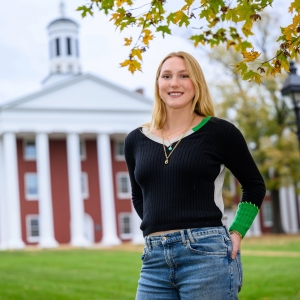Biology
- Degree Type Bachelor of ArtsBachelor of Science
- Department Biology
- Academic Division The College
- Offerings Animal Biology minor Ecology minor Molecular/Cell Biology minor Physiology minor Quantitative Biology minor


The biological sciences play a key role in human society, from the conservation of biodiversity to medicine. The Department of Biology cultivates an exciting academic environment to study, research and contemplate the spectrum of life sciences.
Biology
Biology majors receive a broad education in the biosciences. The curriculum promotes effective scientific communication, the understanding and use of the scientific method, the understanding of the major concepts in biology, the use of the tools and techniques of science, an understanding of the scientific literature and the importance of quantitative techniques. Studying biology at W&L includes hands-on experience, including independent research experience and lab and/or fieldwork, often incorporating original research projects. Graduates are competitive for entry to graduate programs, medical and other professional programs, and employment in all sectors of research, development and commerce.
We believe in the value of a personal educational experience, achieved through small classes and laboratories and opportunities for independent study and research. Faculty embrace the teacher-scholar model and pursue varied research interests with student collaborators.
Student Research
As well as directed-individual study, directed-individual research and honors theses projects, students have the opportunity to work side by side with faculty in the Summer Research Scholars program. Many of our students travel nationally and internationally over the summer to participate in internships encompassing a variety of projects, or to present their research at national society meetings. Students can also take advantage of the Marine Science Educational Consortium with the Duke University Marine Biology Laboratory in Beaufort, North Carolina.
“After I conducted biology research at W&L the summer following my freshman year, I knew that I wanted to major in biology.”
Hannah Archer
Class of 2020

Sarp Sahin ’26 Publishes Research Paper
The senior’s research on Parkinson’s disease was published in Brain: A Journal of Neurology
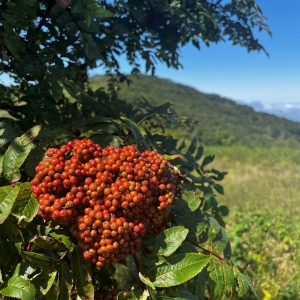
Mudd Lecture Series to Explore Conservation Practice of Rewilding
The day-long symposium will take place on Feb. 12 and feature talks by faculty and community members.
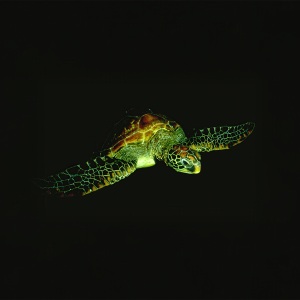
An Extraordinary Evolution
What started as a Spring Term Abroad class in the Galapagos Islands — and a passion project by biology professor emeritus Cleveland Hickman — received new life as a mobile app.
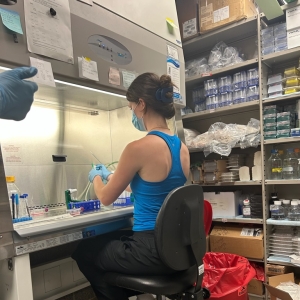
W&L’s DART Internship Program Places Students in Cutting-Edge Research Labs
At prestigious labs around the country, W&L students have pushed themselves and the frontiers of science to help those with a rare disease.

Two W&L Students Awarded Gilman Scholarships to Study Abroad
The Gilman Scholarship Program offers awards of up to $5,000 to U.S. undergraduate students who are Pell Grant recipients.
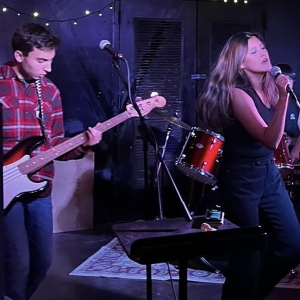
Finding Her Voice
Isabel Duarte ’26 found a path at W&L that blends music and science in perfect harmony.
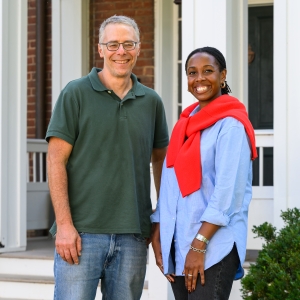
David Marsh and Adrienne Jones to Serve as Scholars in Residence for the Office of Community-Based Learning
Marsh will work with Nature Camp in Vesuvius, Virginia, and Jones will collaborate with the Legal Aid Justice Center for the 25th Judicial District.
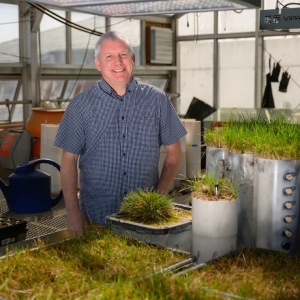
Bill Hamilton to Deliver Lecture in Honor of His Appointment to the John T. Perry Jr. Professorship in Research Science
Hamilton’s talk, titled “Twenty Years of Research in Yellowstone National Park: Lessons Learned from Bison and the People that Value Their Presence in North America,” will be held Oct. 22 in Science Addition 214.

Bill Hamilton Co-Authors Paper in Science
The article, also featured on the journal’s cover, sheds new light on the value of bison recovery efforts in Yellowstone National Park.
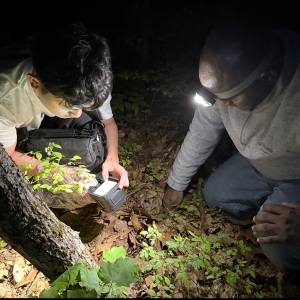
Studying Salamanders
Summer Research Scholars Brian Kim ’26 and Ansley Stotts ’27 have spent their summer conducting field research in a unique outdoor classroom.

Biology Professor Interviewed by ABC News
Bill Hamilton discusses wildlife migration in Yellowstone National Park.
Sample Courses
At W&L, we believe education and experience go hand-in-hand. You’ll be encouraged to dive in, explore and discover connections that will broaden your perspective.
- Genetic Engineering & Society
- Vertebrate Endocrinology
- Field Ornithology
- CSI: W&L
- Yellowstone Ecology
- Microbiology
BIOL 150
Genetic Engineering & Society
In this course, we explore the nuts and bolts of genetic engineering and a small sampling of its applications, including developing drugs and vaccinations, enhancing crops, testing for genetic diseases, and genetic testing in the courtroom. These applications introduce ethical considerations for us to debate. In addition, we use molecular-biology tools to carry out our own genetic engineering projects with spider silk genes, which have potential for multiple medical and industrial applications.
BIOL 250
Vertebrate Endocrinology
This course provides an introduction to the scientific study of the endocrine system, including exploration of chemoregulatory mechanisms in vertebrates and examination of biochemical, cellular and physiological aspects of hormone action. In-class exercises focus on developing written and verbal scientific communication skills, as well as in-depth analysis of primary literature.
BIOL 241
Field Ornithology
This course integrates studies of bird biology with field observation and identification of local bird species. Topics covered include anatomy, taxonomy, reproduction, vocalization, migration, ecology and evolution. Field trips to a variety of areas throughout Virginia emphasize identification skills and basic field research techniques.
BIOL 160
CSI: W&L
This laboratory course is an introduction to the field of forensic science with a focus on the physical, chemical and biological basis of crime scene evidence. A particular emphasis is on the analysis of trace physical (e.g., glass, soil, fiber, ballistics) and biological (e.g., hair, blood, DNA) evidence and forensic toxicology (e.g., drugs, alcohol, poisons).
BIOL 111
Yellowstone Ecology
An intensive investigation of scientific thought and communication, examined in the context of major concepts such as ecology, physiology, population dynamics and biochemistry. From cells to satellite data and bacteria and bears, this course investigates multiple biological levels of organization using the world’s first national park as a case study.
BIOL 310
Microbiology
A broadly based course in the study of microorganisms, specifically prokaryotic cells, microbial diversity and the effects of microbes in the world, in society and in the bodies of animals and plants. It concerns the central role of microbiology as a basic biological science that enhances our understanding of the biology of higher organisms.
Meet the Faculty
At W&L, students enjoy small classes and close relationships with professors who educate and nurture.


Paul Cabe
Biology Department Head and Professor of Biology
- P: 540-458-8894
- E: cabep@wlu.edu
Professor Cabe teaches a number of genetics courses, as well as ornithology. His research interests focus on using modern molecular methods to collect data useful in answering questions in the areas of population genetics and evolutionary biology. He is also interested in ornithology, ecology and conservation biology.


Nadia Ayoub
Professor of Biology
- P: 540-458-8892
- E: ayoubn@wlu.edu
Ayoub teaches Evolution, Genetics, Genomics, Foundations of Modern Biology and Genetic Engineering and Society. Her research focuses on how diversity at the molecular level translates into diversity at the organismal level. Current projects include describing the entire suite of genes needed for silk synthesis in the black widow spider and closely related cobweb weavers and developing phylogenetic markers for spider systematics.


Sarah Blythe
Associate Professor of Biology
- P: 540-458-8342
- E: blythes@wlu.edu
Professor Blythe teaches Addiction and Drugs of Abuse, Vertebrate Endocrinology, Anatomy and Physiology, Food for Thought and Experimental Neurophysiology. Her research explores the physiological and neurobiological effects of obesity. Current projects in her laboratory involve diet-induced cognitive impairments, the gut-brain connection (microbiome), and time-restricted feeding paradigms.


Bill Hamilton
John T. Perry Professor of Biology
Hamilton teaches courses in biology and environmental studies, such as Yellowstone Ecology and Experimental Botany. His research pertains to ecosystem dynamics with a focus on animal-plant-soil interactions in Yellowstone National Park.


Robert Humston
John Kyle Spencer Director for Environmental Studies and Professor of Biology
- P: 540-458-8341
- E: humstonr@wlu.edu
Humston teaches Introduction to Environmental Studies, Aquatic Ecology and Ecological Modeling, among other courses. He has researched fisheries management, fish ecology and dispersal/movement behavior of animals and plants.


Lawrence E. Hurd
Herwick Professor of Biology
- P: 540-458-8484
- E: hurdl@wlu.edu
Hurd teaches zoology, ecology and biodiversity conservation. His research is on tropical biodiversity and entomology.


Helen I’Anson
AIM Program Co-Director, John T. Perry Professor of Biology and Research Science
- P: 540-458-8974
- E: iansonh@wlu.edu
Professor I’Anson teaches courses in fundamentals of biology, animal physiology, microanatomy, reproductive physiology and neuroendocrinology. She also supervises W&L students in the Biology Department’s St. Andrews-W&L Partnership Program. She is currently researching the neurobiology of puberty.




Jessica LaPrice
Associate Professor of Biology
- P: 540-458-8974
- E: jlaprice@wlu.edu
LaPrice teaches courses in fundamentals of biology, animal physiology, mammalogy, and ecophysiology. Her research involves understanding controls of energy balance in hibernating mammals in response to changing environmental conditions.


David Marsh
Professor of Biology
- P: 540-458-8176
- E: marshd@wlu.edu
Marsh teaches Intro to Behavioral Ecology, Microbiome, Field Herpetology, Animal Behavior and Statistics for Biology and Medicine. His research includes effects of climate change on endemic mountaintop salamanders, effects of roads and land use on frog and toad populations across the Eastern and central U.S., and population dynamics of terrestrial salamanders.


Alicia Reigel
Assistant Professor of Biology
- P: 540-458-8896
- E: areigel@wlu.edu
Dr. Alicia Reigel is an interdisciplinary biologist who studies the intricate relationships between marine hosts and their microbial symbionts. Her research explores how anthropogenic stressors impact these partnerships and their connections to surrounding ecosystems.


Natalia Toporikova
Associate Professor of Biology
Professor Toporikova’s courses include Biological Clocks and Rhythms, The Architecture of Living Systems, Dynamics of Biological Systems and Pregnancy: A Kiss in Time? In her research, she applies methods of computational modeling to study a wide range of biological systems. Some recent projects include neural control of breathing, pregnancy initiation in rats, and daily circadian cycle.
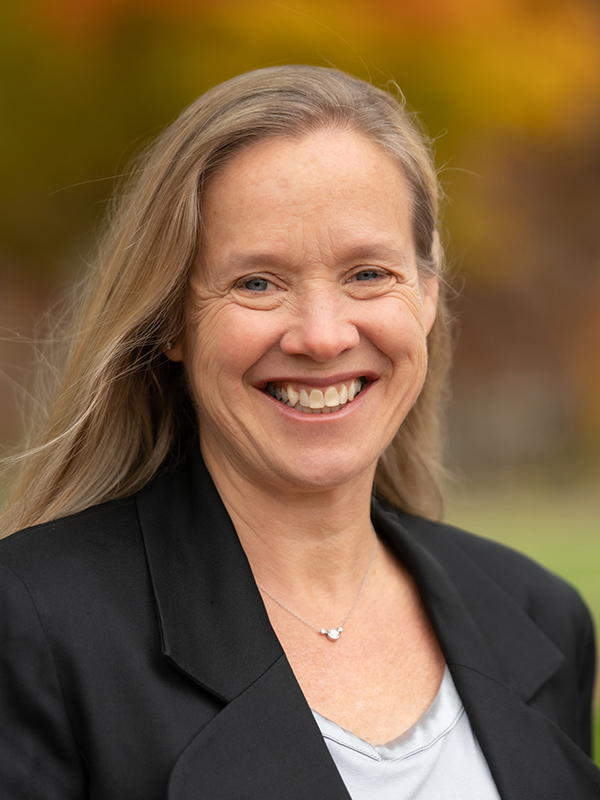

Fiona Watson
Associate Professor of Biology
- P: 540-458-8864
- E: watsonf@wlu.edu
Professor Watson’s courses include Cell Biology, Animal Development, Neural Imaging and CSI: W&L. Her overall research interests encompass two main areas of investigation: 1) the recovery of optic nerve axons of adult Xenopus using a nerve crush injury model, and 2) the effects of pesticide exposure on the neurogenesis of sensory neurons.


Gregg Whitworth
Associate Professor of Biology, Data Science Program Head
Whitworth’s courses include Data Science: Visualizing and Exploring Big Data and The Molecular Mechanics of Life.


Charles Winder
Laboratory Instructor
- P: 540-458-8444
- E: winderc@wlu.edu
Winder holds a bachelor’s degree in biology from the University of North Carolina, Asheville, and a master\’s in botany from the University of Tennessee















More to Explore
At W&L, biology majors have access to unparalleled resources and opportunities.
- Duke Marine Lab Consortium
- St. Andrews Program
- Health Professions Program
- Biological Honor Society
Research
Duke Marine Lab Consortium
Washington and Lee is a member of the Duke Marine Lab consortium, allowing our students to study Marine Biology at the lab either fall or winter semester during the academic year. Credits from Duke Marine Lab biology courses can be counted towards the W&L Biology major, and credits from Marine Lab environmental studies courses will usually transfer as W&L environmental studies courses. In general, W&L financial aid can be applied directly towards Duke Marine Lab tuition.
Study Abroad
St. Andrews Program
Washington and Lee University and the University of St. Andrews have joined in a partnership, providing a quality study abroad experience for students in the sciences and students interested in the health professions. As part of this program, participating students may enroll for specific science classes which will receive credit and a grade on a W&L transcript; additionally, premed students may elect to take part in a special premedical seminar, which includes site visits to area hospitals and clinics, offered by a member of the St. Andrews Medical faculty.
Graduate School
Health Professions Program
Competition for acceptance to health professional graduate schools is fierce, so take every opportunity to enhance your chances. We provide the best advice and information available to help you make choices during your undergraduate career.
Honors
Biological Honor Society
Beta Beta Beta (TriBeta) is a society for students, particularly undergraduates, dedicated to improving the understanding and appreciation of biological study and extending boundaries of human knowledge through scientific research.
